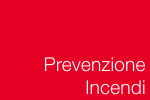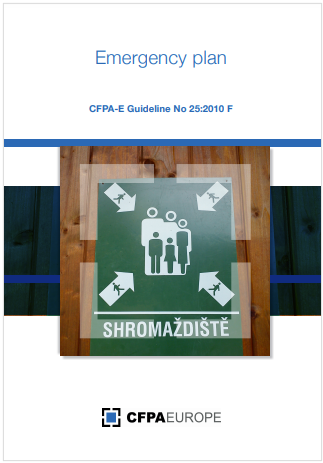Emergency plan
ID 17123 | 20.07.2022 / CFPA
Introduction
Taking care of the safety systems belongs to the daily work of a company or institution. Working consciously in advance on matters of safety instead of learning afterwards from accidents that have occurred can be considered as important as the actual production and other activities carried out on site.
Many accidents and damage are caused by incorrect and careless behaviour of human beings.
Therefore, the best way of improving safety systems is to affect peoples’ attitudes and behaviour.
However, safety does not become a practice by itself without constantly working on it. For a company, in order to get started, an honest and visible commitment of the management for improving the overall safety systems and arranging safe working conditions is needed. Importance of the overall safety and every employee’s responsibility for maintaining it can credibly be conveyed by means of managing and organizing.
A company or organisation can improve their own safety systems in many ways. At first it is necessary to be aware of risks associated with the everyday activities. After that it is possible to
prevent accidents by different means. Even by doing little things – for example by improving order and cleanliness– a great deal of accidents and damage can be avoided.
At a scene of an accident, individual rescue actions play significant roles. Therefore, preparedness for voluntary action is needed. Much can be saved if – for example – an emergency call can be made without any delay and if the rescue actions can be started as soon as possible even before the professional help from the outside arrives.
Scope
The aim of this guideline is to help a company or an institution to be prepared for accidental situations e.g. fire and other accidents. That can be achieved by making a written document –
Emergency Plan. The document can be used as a part of the business continuity plan. When planning, the organization needs to decide the order of priority of the accidental situations to be handled. In this guideline, the focus of attention is fire safety.
The emergency plan will advise on how to act if a fire or another accident has taken place. In the plan, all possible internal and external risks should be considered. Assistance from external bodies, such as the fire brigade, police and neighbours, should also be discussed.
In this Guideline, Institutions are considered as premises which are used 24 hours a day being:
- Hospitals
- Accommodation premises and dwellings, which are intended for occupants whose changes to evacuate themselves are inferior to the normal because of their reduced physical or mental capabilities. Such occupants are usually elderly people.
- Prisons
Note:
The method of making an emergency plan is also applicable for prisons. However, this guideline does not give advice on how to prevent a prisoner escaping
...
add more in attachment
CFPA-E Guideline No 25:2010 F
Collegati




















